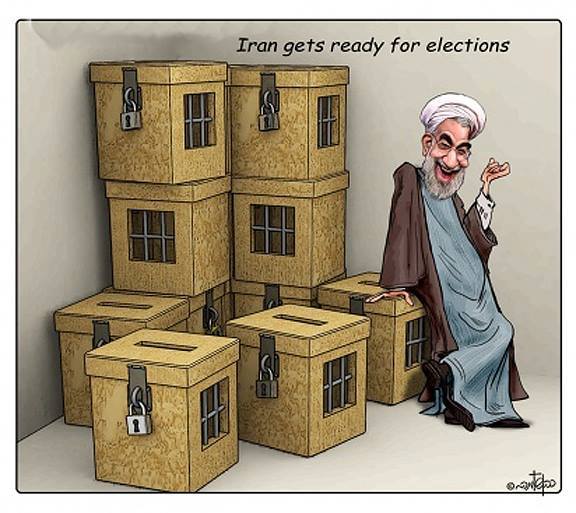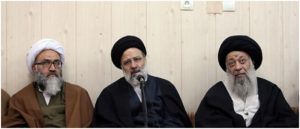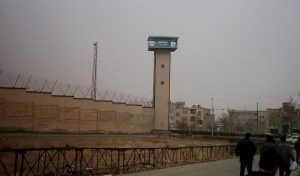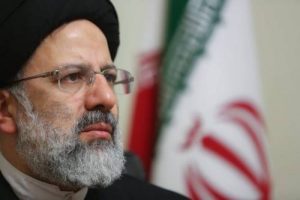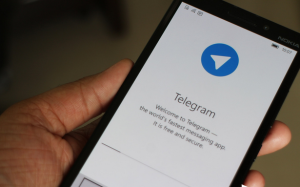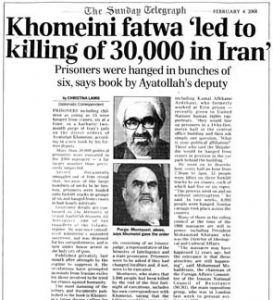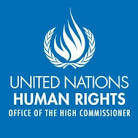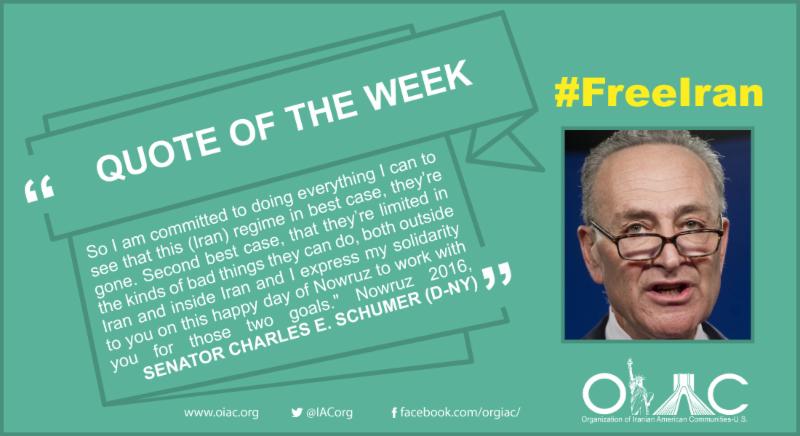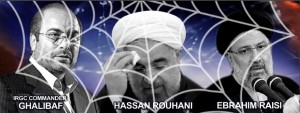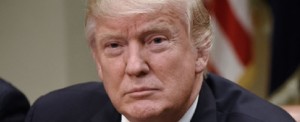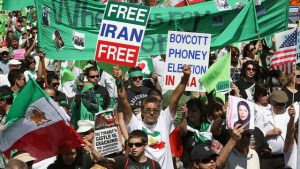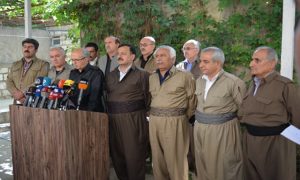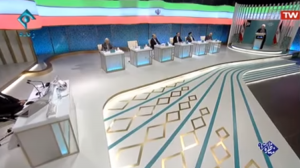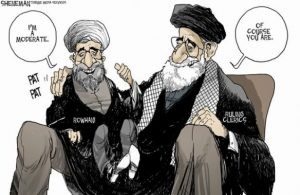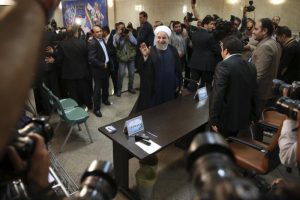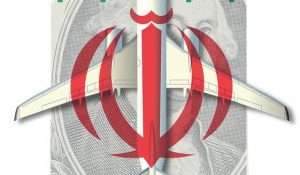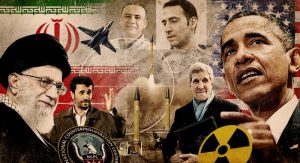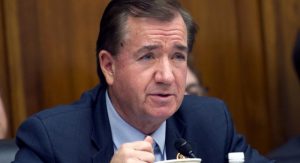Iran- Human Rights (Women, Minorities, Ethnics)
UN Human Rights Expert Condemns Iranian Press Report
OIAC
With the approval of Ebrahim Raisi’s candidacy by the Guardian Council, human rights activists have been vocal about the impact of his potential presidency on Iran and its people.
Shadi Sadr
His candidacy “shows great contempt for human rights, the rights of the Iranian people, and the families of those killed in the 1980’s,” said Shadi Sadr, an international law expert.
In 1988, Raisi was part of the “Death Commission”, a four-man panel ordered the execution of 30,000 political prisoners. “With Raisi’s candidacy, the regime is sending a clear message that it does not care about crimes against humanity nor does it have any intention to investigate the crimes in 1988, and in fact will install those responsible for the massacre in the highest governmental posts in the country,” said Sadr. “Under international law, what happened to the victims of the 1988 massacre falls under ‘Enforced Disappearance’, because the locations of the crimes and places where the victims were buried were never disclosed.”
Eleven Prisoners Including Juvenile Offender in Imminent Danger of Execution
Iran Human Rights
Saturday April 29, eleven prisoners in Rajai Shahr Prison were reportedly transferred to solitary confinement in preparation for their executions.
Among these prisoners is Mehdi Bahlouli, who was reportedly 17 years old at the time of his alleged crime.
According to close sources, Mehdi Bahlouli had been transferred to solitary confinement in preparation for his execution ten days ago in preparation for his execution, but he was returned to his cell after the plaintiffs on his case file agreed to temporarily halt his execution in order to give him time to collect the blood money.
Iran Human Rights has confirmation on the names of two other prisoners who are among the eleven: Majid Agha Rahimi and Ali Maleki.
Videos Appear Defending Iranian Presidential Hopeful’s Role in 1988 Prisoner Massacre
Center of Human Rights in Iran
Since Ebrahim Raisi announced his candidacy for Iran’s presidency, videos have been appearing online defending the 1988 massacre of thousands of political prisoners, which Raisi implemented as part of a special committee.
The videos were recently published without clear indications of who or what organization produced them. However, some have been posted by Raisi’s official campaign page on the Telegram messaging application, which is widely used in Iran.
The head of Iran’s wealthy Astan Quds Razavi religious and business conglomerate, Raisi is current President Hassan Rouhani’s main rival for the country’s elections on May 19.
In 1988, as the deputy prosecutor of Tehran, Raisi was appointed by the founder of the Islamic Republic, the late Ruhollah Khomeini, to the “Death Committee,” which implemented the executions of thousands of political prisoners who had already been tried and sentenced.
Iranian Female Soccer Player Publicly Decries Ban For Playing Without Hijab
Center of Human Rights in Iran
A professional soccer player who once played for the Iranian women’s national futsal team has publicly spoken out against a ban she says was imposed on her for not wearing the hijab while playing the sport during a private trip abroad.
“I never thought I would never be able to play in my country because I played without a piece of cloth on my head or covering my legs during a private trip,” Shiva Amini wrote on her Instagram page on April 26, 2017.
“I’m sorry that the hijab is more important to them (Iranian government) than the sport itself,” she added. “What do you want to prove by eliminating people like me who have always wanted to make Iran proud?”
Iranian women are required to wear the hijab, the head-to-toe-covering Islamic dress code, at all times in public.
Iran’s Judiciary Blocks Instagram’s Live Video Service Weeks Before May 2017 Elections
Center of Human Rights in Iran
A 21 years old man was hanged in public in the city of Babol (Northern Iran).
One man was hanged publicly in the city of Babol Saturday morning April 22, reported the state run Iranian news agencies. The state controlled YJC news agency reported that the 21 year old man was identified as H.R. sentenced to qisas death penalty (retribution).
H.R. was covicted of murdering another man identified as R. F. 1,5 years ago. The family of the murder victim and some officials were also present during the public execution.
Three Young Men to Serve 12 Years in Prison For “Insulting” Social Media Posts
Center of Human Rights in Iran
Three 24-year-olds have been sentenced to 12 years in prison each in Iran for posting critical commentary about politics and religion on the popular Telegram messaging network.
“These guys were posting articles and cartoons on Facebook and Telegram that criticized the political and religious situation, and also shared material from others,” an informed source told the Center for Human Rights in Iran (CHRI). “But most of the accusations against them are related to their posts on a Telegram channel where political and religious topics were discussed.”
Alireza Tavakoli, Mohammad Mehdi Zamanzadeh and Mohammad Mohajer were arrested in Tehran during the summer of 2016 by Iran’s Intelligence Ministry. Tavakoli was arrested on August 2, Zamanzadeh on September 3 and Mohajer on September 10.
Iran’s Presidential Candidates’ Crimes Against Humanity
Clarion Project
Iran’s presidential election is scheduled for May 19. Last week the Guardian Council, the body controlled by Supreme Leader Ali Khamenei which vets election candidates, eliminated all but six candidates. Only two of the remaining six are considered serious applicants for the Islamic Republic’s next president: incumbent President Hassan Rouhani and Ebrahim Raisi, a cleric currently heading the Astan Quds Razavi, a so-called charity foundation with an estimated value of $15 billion.
As far as the Iranian people are concerned, there is no difference between these two candidates and no fundamental change will result from the selection of either candidate.
However, this presidential election has set the stage for the Iranian people and the international community to witness the most unprecedented confessions by various candidates regarding the 1988 massacres and crimes against humanity carried out by the entire Islamic Republic regime.
UN human rights expert condemns “defamatory” Iran report
UN Human Rights
GENEVA (24 April 2017) – The United Nations Special Rapporteur on the situation of human rights in the Islamic Republic of Iran, Asma Jahangir, has denounced a report published by the Iranian News Agency (IRNA) alleging that she was planning to undertake a visit to Saudi Arabia in order to defame the authorities in Tehran.
The report also suggested that Ms. Jahangir intended to carry out the mission on behalf of military interests. But the Special Rapporteur has condemned and vehemently denied the news item.
“I am appalled by this fabricated and malicious news story which is clearly aimed at compromising my integrity and independence, both of which are recognized internationally,” said Ms. Jahangir.
“Anyone who has a substantive disagreement with a Special Rapporteur’s assessment can always express their doubts. However, it is unacceptable for mandate holders to be subjected to defamation campaigns when discharging their duties, which are established by the United Nations Human Rights Council,” she stressed.
– See more at: http://www.ohchr.org/EN/NewsEvents/Pages/DisplayNews.aspx?NewsID=21524&LangID=E#sthash.ePqdnoCU.dpuf
Iran- Terrorism Activities (Middle-East)
Iran’s “Election” is Selection
OIAC
With Iran’s presidential election looming close, there’s a lot of debate and controversy over who is going to occupy the country’s top political role. With tight restrictions on candidates, a supreme leader who can override the results, and institutions that can manipulate the popular vote, there’s not much to say about the credibility of Iran’s presidential elections.
Nonetheless, it doesn’t hurt to know who might be at the front of Iran’s showcase of politicians for the next four years. Here’s what you need to know about the potential candidates for Iran’s presidency in May’s elections.
What should President Trump do about Iran? Campaign rhetoric about a rapid dismantlement of the 2015 nuclear deal between Iran and the P5+1 powers has given way of late to policy inertia, as the new White House focuses on domestic challenges (like health care) and foreign irritants, such as Syria and North Korea. But there are now fresh signs that the White House could soon seriously rethink its Iran strategy. As it does, it would be wise to revisit one of its earliest foreign policy concepts, and one with the potential to dramatically alter the strategic equation vis-a-vis Iran: a comprehensive blacklisting of the Islamic Revolutionary Guard Corps.
The starting point for any such discussion is to determine whether the group in question meets the legal definition of a foreign terrorist organization. Under the relevant sections of the United States Code, this means satisfying three distinct criteria.
With help from US, transformative change in Iran is within reach
The Hill
Recently, Senate Armed Service Committee Chairman Sen. John McCain(R-Ariz.) met with Maryam Rajavi, the president-elect of the National Council of Resistance of Iran (NCRI) and addressed members of the People’s Mojahedin Organization of Iran (PMOI/MEK) in a rally in Tirana, Albania.
Senator McCain’s visit represents a turning point in the plight of the Iranian dissidents now in Albania, but more importantly, marks a significant milestone in their struggle to bring about democratic change in Iran.
Despite years of delays and several deadly attacks by mercenaries loyal to the Iranian regime, the MEK left Camp Liberty in Iraq with help from the previous occupants of the White House – perhaps the only piece of former President Obama’s Iran policy that will prove to have a lasting positive effect. As many as 3,000 lives were saved.
Iran’s Kurdish Opposition Groups Call On People Of Eastern Kurdistan To Boycott Of Iran’s Election
Iran news update
Kurdish voters have been called upon to boycott the upcoming general elections in the country by Iran’s exiled Kurdish opposition groups, who have described the May elections as “a masquerade” staged by “a regime that has deprived the human and just rights” of the people in Iran’s Kurdistan.
The Kurdistan Democratic Party (HDK), the Kurdistan Communist Party (Komele), the Kurdistan Communist Party-Iran (Shorishger), the Kurdistan Struggle Orgniztaion (Xebat), the Kurdistan Democratic Party-Iran (HDKA) and the Iranian Kurdistan Communist Organisation, who comprise the six leading opposition groups based in Kurdistan Region, made a joint written statement, saying that to boycott the elections “is a way to prevent further oppression and crackdown through elections.”
The statement, made on Thursday, said, “We call on all the people of Eastern Kurdistan (Iran) to boycott the May 19 elections as a consistent reaction to the continued violation of their rights. By not participating in this masquerade, you will deliver a clear message to the world about your will and unity against a regime that continues to violate your human and just rights.”
Debates of Iran’s Presidential Candidates Center on the Economy
Iran News Update
Although Iran’s economy is highlighted in the debates for the upcoming Iranian election on May 19, no real plan or solution to improve the lives of Iranian citizens, their poverty and their unemployment, have emerged.
Current President Rouhani secured Iran’s Nuclear Deal, the JPCOA, with 6 world powers, including the US. It was believed to be a positive development by many Iranians, as it lifted various economic sanctions and opened up the possibility of bringing foreign investment into Iran, which would have a positive impact on employment and the economy.
However, stories continue to filter out of Iran about the billions of dollars that were released as part of the agreement being spent on Iran’s military objectives, instead of its people. Business continue to shut down, and workers that aren’t being paid a fair wage.
“The gap between rich and poor has widened in Iran…” said Ebrahim Raisi. “Monthly cash handouts to poor people should be tripled.” Raisi, a candidate in the election, rose to prominence in the Iranian judiciary, but was also part of the 1988 “Death Commission” who ordered the deaths of thousands of political prisoners. Raisi continued, “One of the main priorities of the Islamic Republic is to preserve social justice…Steps should be taken to protect poor people. We need to overhaul the economic system.”
Do not be fooled again: Iran hard-liners vs moderates
Arab News
Iran’s government is playing its hand very skilfully in the upcoming presidential elections, as it did in 2013, when the world was sold the idea that a “moderate” was running against a “hard-liner.” Many national and international media outlets, as well as pro-Iran agents in the West, reinforced this narrative. This made many people believe that if a “moderate” wins, Iran and the world would become much better places.
People were sold the notion that a “moderate” would alter Iran’s domestic policies, promote human rights, respect freedoms and advance social justice. They were told a “moderate” would fundamentally alter Iran’s foreign policy, make Tehran a constructive player and oppose the deployment of hard power, military expansionism and the Syrian regime. So they began advocating for the “moderate.”
Even former US President Barack Obama lobbied to strengthen Iran’s “moderates,” making many concessions, helping lift four rounds of UN sanctions, and turning a blind eye to Iran’s domestic abuses and regional interventions.
Iran- Nuclear Activities
We are not going to allow Iran to mass produce ICBMs
Foreign Affairs Committee

Chairman Ed Royce On Iran Nuclear
Foreign Affairs Committee
“What I think we will see, Wolf, at the end of the day is a circumstance in which you have the Trump administration enforcing the hell out of the agreement but also looking at missiles and the ICBMs…
“…we are not going to allow the Iranians, now that we’ve already had a deal where [the Obama administration] gave up all the leverage up front in terms of the sanctions, which was billions in relief, to go forward and mass produce ICBMs so that when we are at the end of the agreement … and we lift everything… they… have a turnkey operation for ICBMs.
“What I see going forward is legislation that I, and my ranking democratic member Eliot Engel, and the democratic whip, and the republican majority leader are all jointly working on. My legislation would… allow us the additional diplomatic and financial leverage we need against Iran to make certain they do not go forward and build out this ICBM program.”
The nuclear deal takes center stage as Iran’s election campaign gets underway
The Washington Post
Iran’s short, intense presidential campaign kicks off Friday with the first televised debate featuring six candidates in a race widely seen as a referendum on whether Iranians feel they have benefited from the nuclear deal that took effect last year.
The May 19 vote will see the moderate incumbent, President Hassan Rouhani, facing off against conservative and reformist challengers, including a hard-line cleric with backing from the country’s religious establishment.
Iran’s influential Guardian Council, a body of senior clerics and jurists appointed by the supreme leader, vets the candidates each election. This year, Rouhani’s approved challengers include the hard-line mayor of Tehran, Mohammad Bagher Ghalibaf; a conservative former culture minister, Mostafa Mirsalim; Vice President Eshaq Jahangiri, a moderate; and former vice president Mostafa Hashemitaba, a reformist.
Why Boeing and Airbus deals with Iran shouldn’t fly
The Washington Times
Sometimes international law is ambiguous. Sometimes not. When it comes to murdering civilians and using chemical weapons to get the job done, there are no gray areas, no fuzzy lines, no mitigating circumstances. Such practices are clearly and specifically prohibited under what’s called “the law of war.” That makes Bashar Assad, Syria’s dynastic dictator, a war criminal. And it makes Iran his chief accomplice.
As far back as 2005, Jane’s Defense Weekly reported that Iran’s rulers were actively helping Mr. Assad launch an “innovative chemical warfare program” – providing technology to build equipment that would produce “hundreds of tons of precursors for VX, sarin nerve agents and mustard blister agent.”
When it comes to the Islamic republic, President Trump and his advisers are under no illusions. “Everywhere you look, if there’s trouble in the region, you find Iran,” Secretary of Defense James Mattis said last Wednesday during a visit to Saudi Arabia.
“Iran is the world’s leading state sponsor of terrorism,” Secretary of State Rex Tillerson reaffirmed the same day. The clerical regime, he added, “is responsible for intensifying multiple conflicts and undermining U.S. interests in countries such as Syria, Yemen, Iraq and Lebanon and continuing to support attacks against Israel. An unchecked Iran has the potential to travel the same path as North Korea and take the world along with it.”
Obama’s hidden Iran deal giveaway
Politico
By dropping charges against major arms targets, the administration infuriated Justice Department officials – and undermined its own counterproliferation task forces.
When President Barack Obama announced the “one-time gesture” of releasing Iranian-born prisoners who “were not charged with terrorism or any violent offenses” last year, his administration presented the move as a modest trade-off for the greater good of the Iran nuclear agreement and Tehran’s pledge to free five Americans.
“Iran had a significantly higher number of individuals, of course, at the beginning of this negotiation that they would have liked to have seen released,” one senior Obama administration official told reporters in a background briefing arranged by the White House, adding that “we were able to winnow that down to these seven individuals, six of whom are Iranian-Americans.”
Royce chides Obama administration on proliferation
Politico
House Foreign Affairs chair asks State, Justice to revive probes that may have been undermined by Iran dealings.
The chairman of the House Foreign Affairs Committee called on top Trump administration officials Tuesday to “revive law enforcement efforts unwisely abandoned by the Obama administration” targeting Iran’s nuclear, ballistic missile and weapons programs, in response to a POLITICO investigation about how U.S. counterproliferation efforts may have been undermined in the effort to secure a nuclear deal and prisoner swap with Tehran.
Rep. Edward R. Royce made the request in a letter to Secretary of State Rex W. Tillerson and Attorney General Jeff Sessions, citing POLITICO’s findings that the Obama-led State and Justice departments delayed and at times derailed key investigations and prosecutions into global Iranian trafficking networks during those prolonged negotiations.

